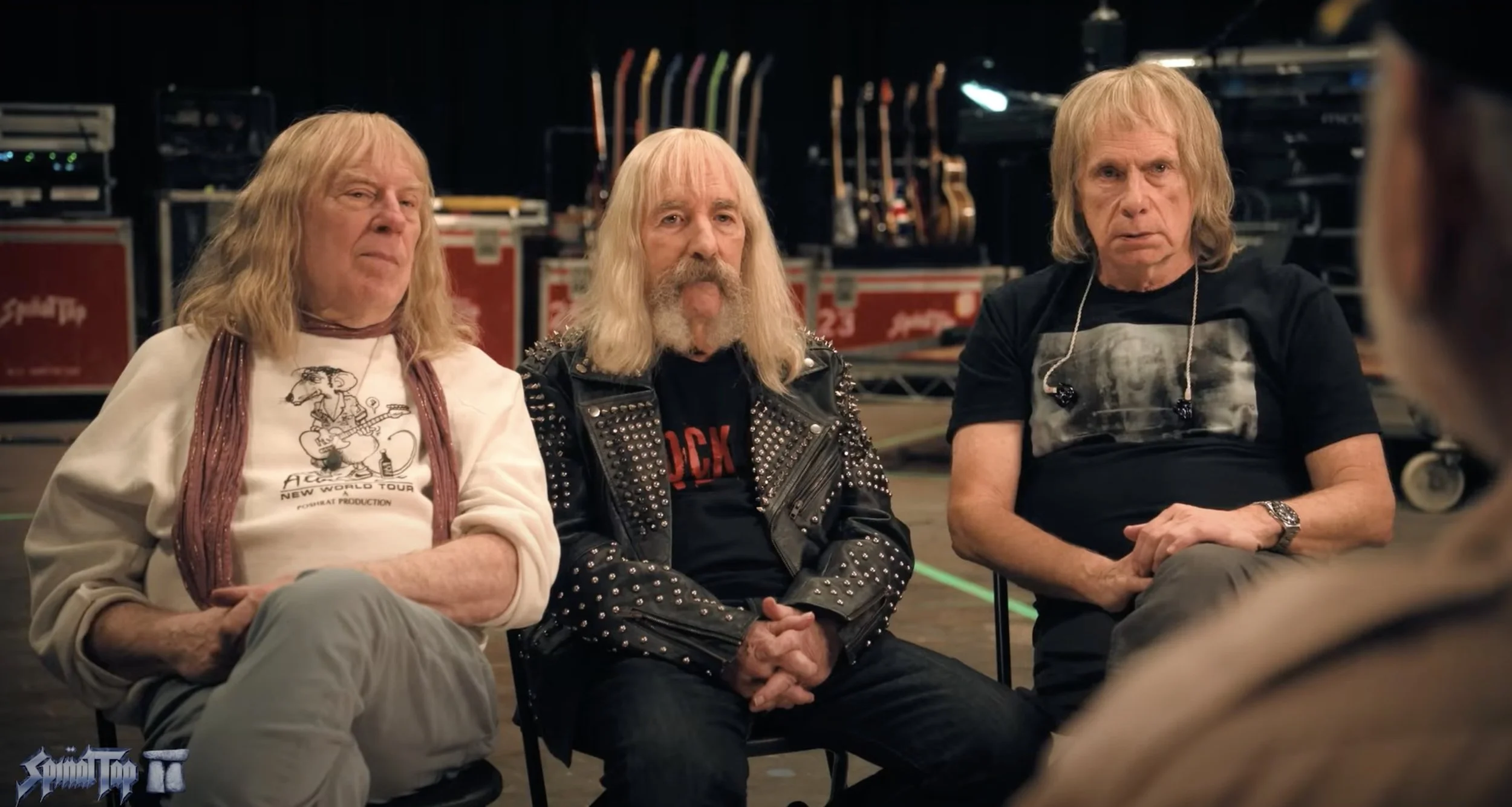It was a special treat to have the opportunity to interview the members of Spinal Tap, Derek Smalls, David St. Hubbins, and Nigel Tufnel, as well as the director of the new film about their reunion and performance in New Orleans, and the director of both films, Marty DeBergi. Seeing the band get back together after some years of estrangement is heartwarming, and, as in the first film, very funny. In our interview, DeBergi told me why the group was not happy with the first film and Spinal Tap talked about some contemporary musicians they admire, their early influences, and the audience’s reaction when they had the folk singing trio The Folksmen for their opening act. [Editor’s note: The Folksman bear a very strong resemblance to the members of Spinal Tap as you in see in what might be called a companion movie, “A Mighty Wind.”]
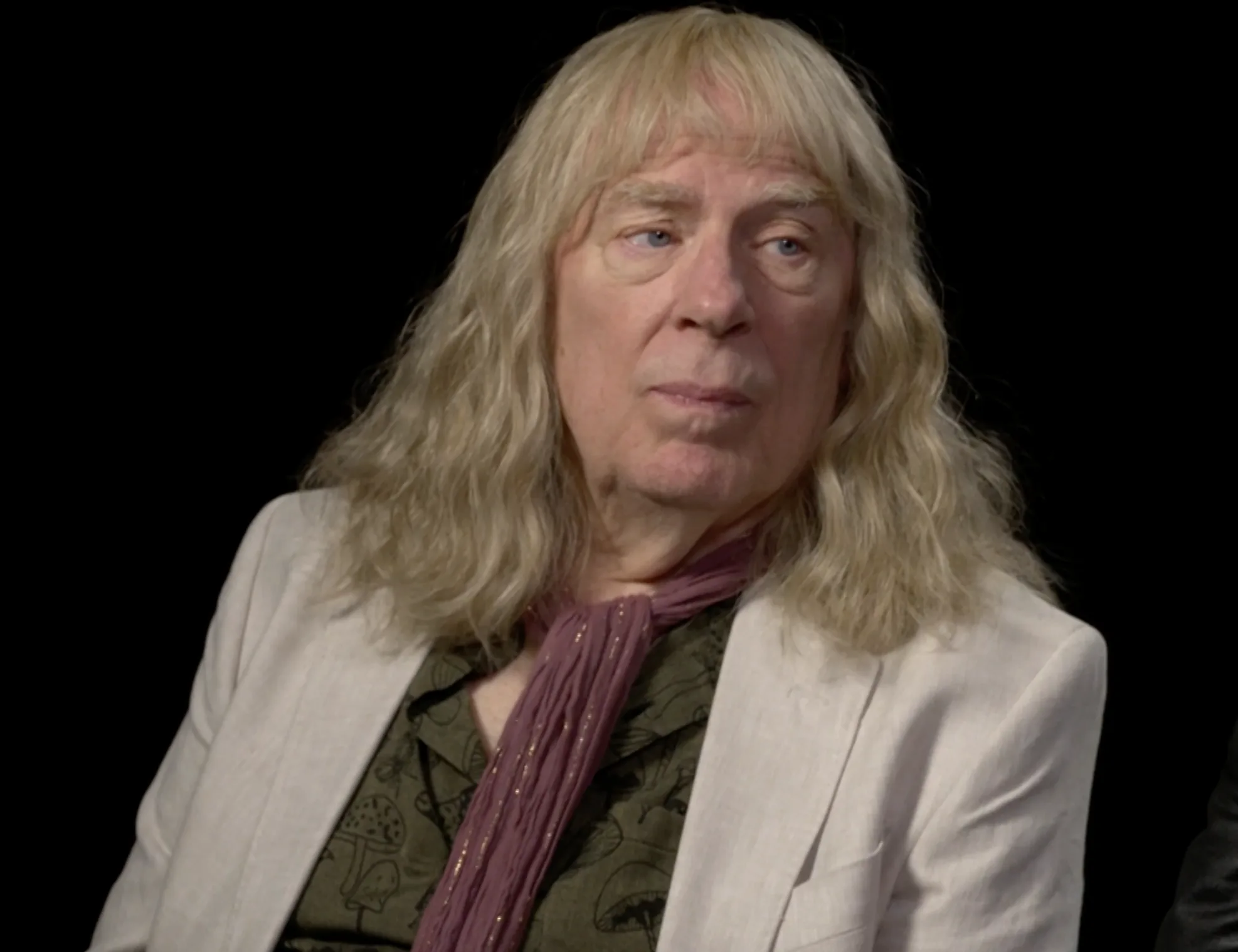
Derek, I was very interested to see that you have pivoted from music to operating a museum of glue, so I want to begin with a request for help. I have a piece of paper and a piece of cardboard that need to be stuck together. What kind of adhesive product do you recommend for this project?
DEREK SMALLS: Mucilage. It’s animal-based, and it’s great for flat surfaces.
And Nigel, you have been running a shop that sells guitars and cheese. I’m a big fan of a good grilled cheese sandwich. What cheese do you recommend?
NIGEL TUFNEL: Well, you’ve got different cheeses in the States. In the States, I would say you must do cheddar. English cheddar is different than American cheddar, you see. Our cheddar is a white cheese, actually. And Irish cheddar is also white. Americans put the fake coloring in it. But you can’t go wrong with a good cheddar. On toast.
As all Spinal Tap fans know well, you have lost several drummers. So an important part of this movie is when you have to audition drummers to play with you in the concert. I noticed that you reached a consensus without consulting with each other.
DAVID ST. HUBBINS: Yeah, we were all on the same page. We saw a lot of different styles.
NT: Well, we’ve played so much together that we kind of know what we’re looking for. A person that’s alive is important.
DS: Alive at the moment.
NT: Alive for the time being, for the gig. And yeah, we just all know what we’re hearing, and that’s how it happens.
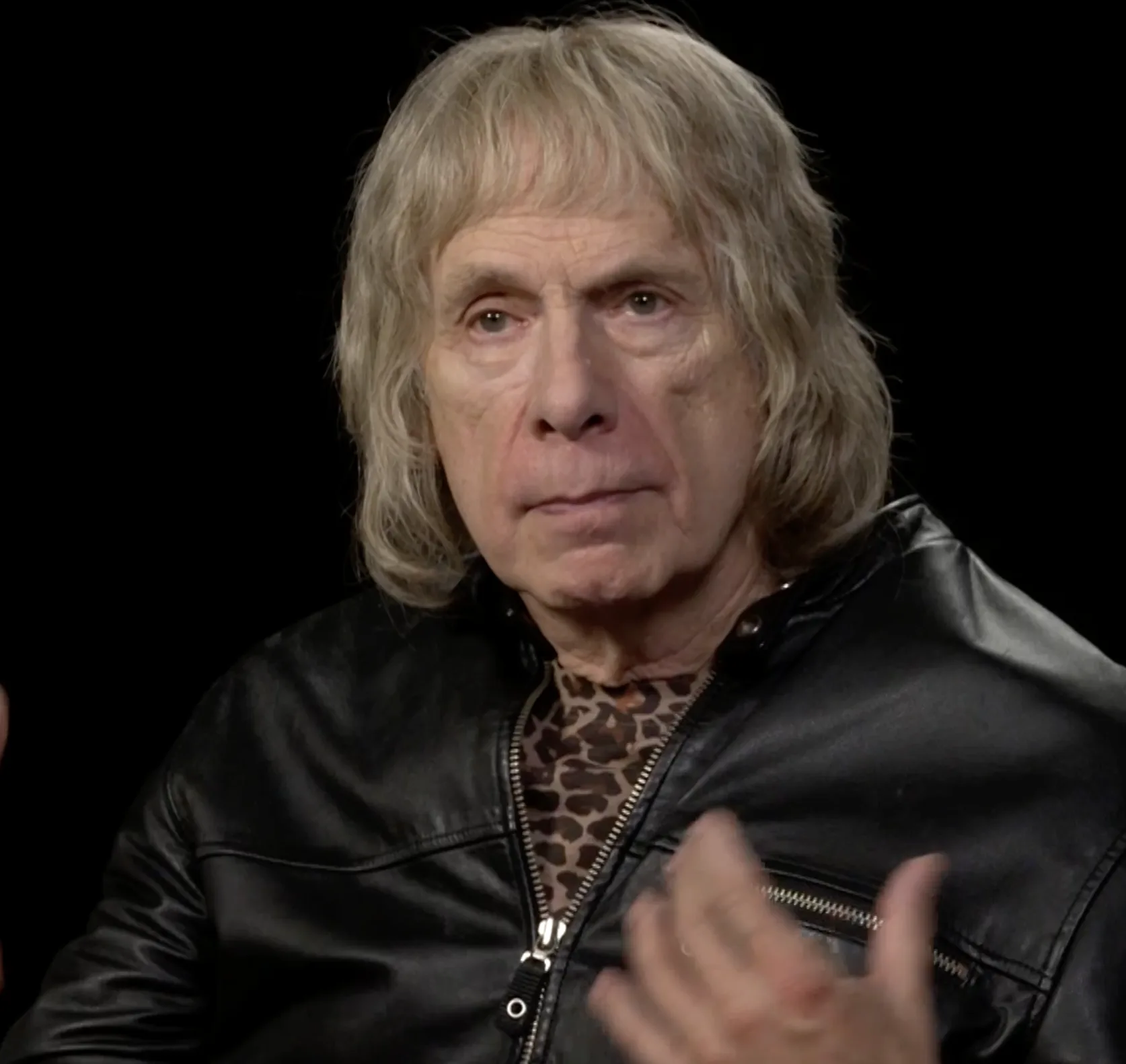
Were you pleased with her?
DSH: she’s a remarkable person young and alive. She’s the spirit of rock and roll we’ve let dwindle in ourselves perhaps a bit but it’s part of aging.
DS: It’s us reinvigorating the introduction of females into the rock pantheon. That’s very important.
DSH: Well, there’s The Warning, a band with a remarkable bass player. She doesn’t really play much but what she does play is “churce” as kids say. Of course, Joan Jett, God bless her, still at it.
NT: Tal Wilkenfeld is a great bass player. Esperanza Spaulding.
DS: She’s not in rock.
NT: She sometimes is.
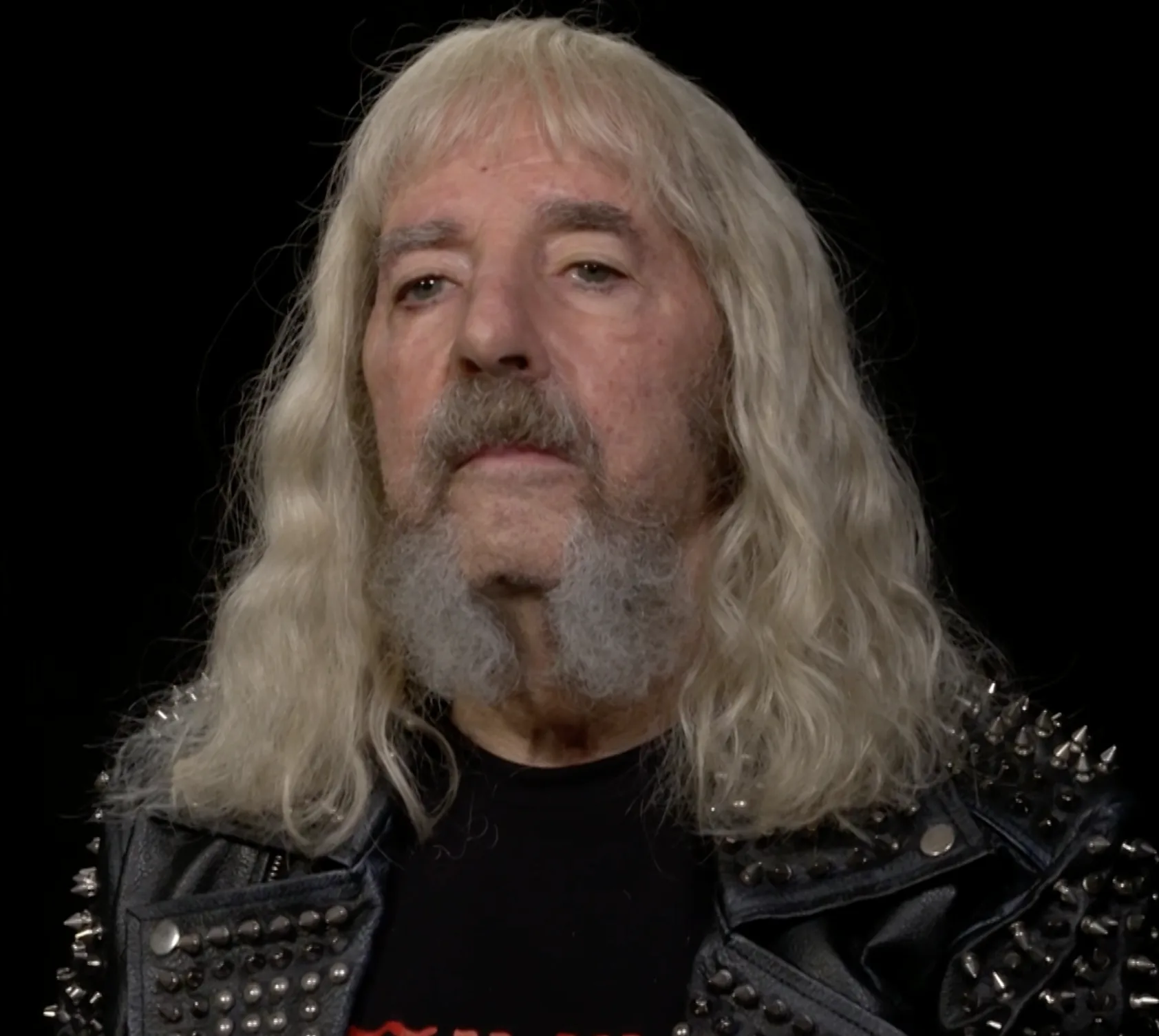
Why are you so interested in Druids?
NT: The Druids have a long history. It goes back 4,000 years of worshipping whatever it is. It’s not that specific. And let them do what they do, I say. Let them dance. Let them sing. Let them worship, whatever that is.
DSH: Just don’t let them ride certain rides.
NT: You don’t let them rollercoaster because they’re too short.
DS:You’re saying let Druids be Druids.
NT: That’s right. I am saying that. If it boils down to one thing, yes.
I heard that you had the folk singing group The Folksmen opening for you, and some audience members were not appreciative because your musical styles are so different. Are you friends with The Folksmen?
NT: We’re not friends friends, you know they opened for us a few times.
DSH: We were being booked by an outfit that also handled The Folksman and they couldn’t find a slot for them. And we like folk music. “Flower People” is essentially a folk song.
DS: That probably was the gig in New York at The Beacon, where the audience hadn’t been told there was an opening act and they had prepared themselves drug-wise for us
NT: and hearing wise. They’re perfectly nice people but we don’t have much in common.
DS: So the audience started going “Tap! Tap!”
DSH: And someone in the third row yelled, “You call that noise?”
NT: Yeah, and that was their manager.
David and Nigel, you’ve known each other quite a long time. Do you remember the first music you played together.
NT: It was skiffle type of music because Lonnie Donegan was huge then. This would have been early 60s. ”Does the Chewing Gum Lose Its Flavor on the Bedpost Overnight?” That’s Lonnie Donegan.
DSH: And that was really the first thing, and everyone seemed to be playing it. We listened to Nancy Whiskey’s version of “Freight Train.” Where does that come from? And then you get to Elizabeth Cotton. And she’s doing the same thing. And so, it opened venues of exploration of different kinds of music, the styles of music. And at the same time, it was very easy to play, you know, a couple of guitars and then some bloke to stand out there with a washtub bass, and you’re off, you’re on.
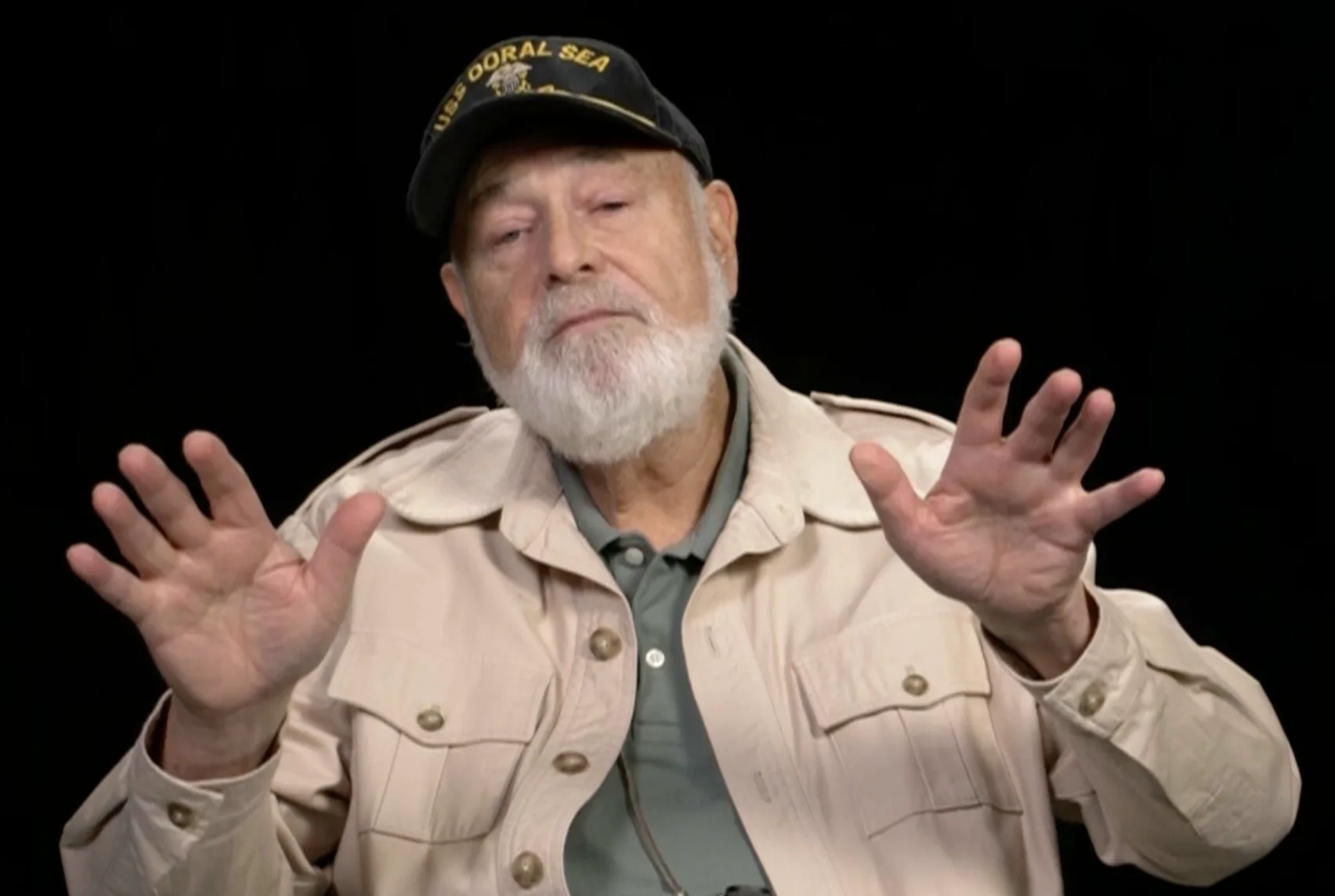
Which is the bigger honor, “It goes to 11” in the Oxford English Dictionary or your movie in the Criterion Collection?
MARTY DIBERGI: Just being alive and talking with you is the biggest honor that I could have. I’m not in this for the honors. I’m in this for the work. And unfortunately, it’s been very thin for me. I was lucky enough to make the first documentary. And it inspired all these shows like, you know, “Parks and Rec” and “The Office” and “Abbott Elementary” and all of these shows that do this documentary style that I started and I pioneered and nobody thinks of me. Nobody. I haven’t made a penny. I’ve been sitting, I’ve been living hand to mouth for the last 40 years. I’m not in it for the honors. I just want to work.
Why do you think Spinal Tap are so into Druids?
No one knows about Stonehenge and how it came to be. They don’t know whether or not there were Druids. I don’t think the Druids were small people. I think they were regular-sized people. But for some reason, Spinal Tap believes that they’re small people. And who am I to argue with that? Because nobody really knows for sure.
A lot has changed in 40 years, particularly technology. How is it different shooting this movie than it was shooting the first one?
I like to say that I grow with the times, and I’ve become a more modern filmmaker. The fact of the matter is the first film was shot on 16 millimeter with one camera. This one is shot digitally with two cameras digitally so there’s a big difference there. I have to say that much like the band who have not in the last 40 years grown either emotionally or musically, the only thing they might have grown is a few skin tabs but that that comes with age and I am not going to fault them for that because I myself have wrestled with that; I’m hoping I mature as a filmmaker but I’m a traditionalist and so hopefully there’s the same feel in this film that you saw in the first one.
I saw the first one in the theater when it came out because it was the first time my husband and I had a night off after our son was born, and it was the shortest movie that was showing. We fell in love with it and have watched it many times. What is it that most people say to you when they tell you how much they love the film? Do they start quoting it to you?
They quote it a lot, but I think the thing that you hit on is accurate. It’s short. It’s only 83 minutes. And I knew that the second film, if I was going to be successful, I had to do that again. The second one is only 83 minutes, too. If somebody is going to go see the first film, and they’re a young person that just had a child, this is the film to see.
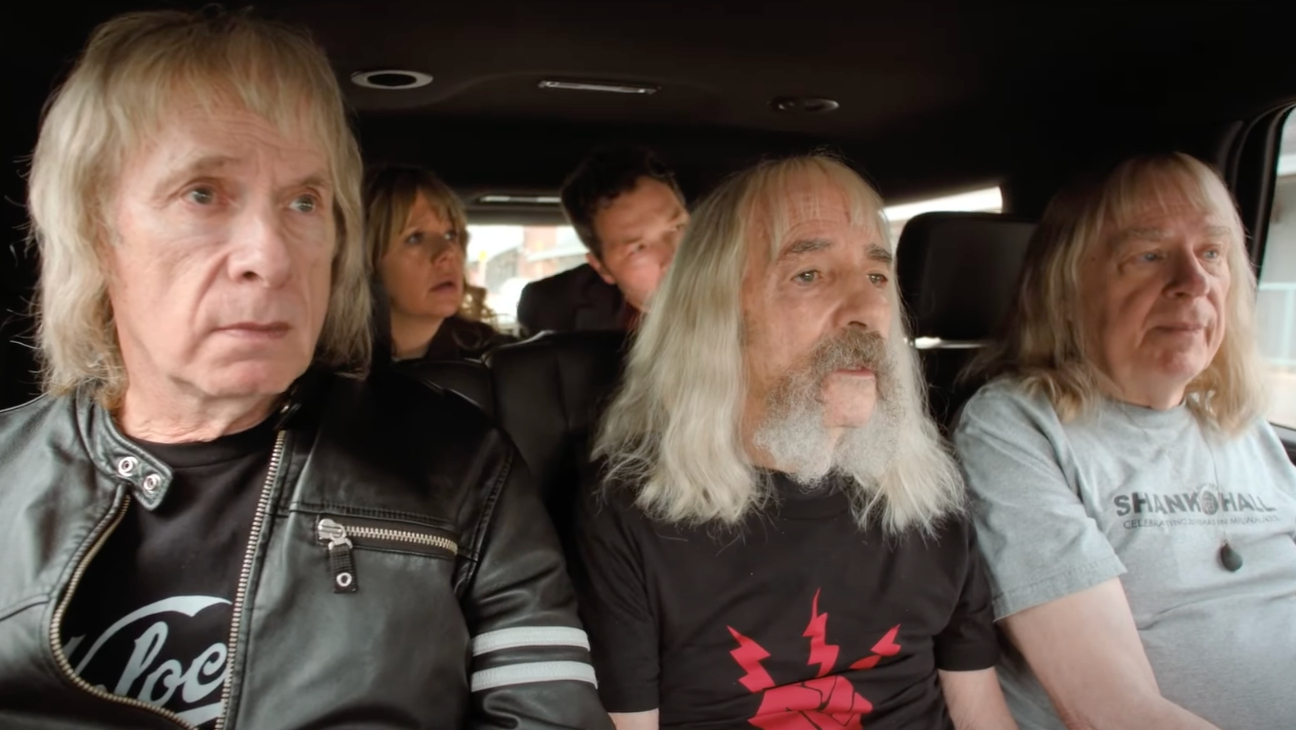
I was surprised to hear “Listen to the Flower People” in the film because it is so different from their later work.
Well, it wasn’t a choice that I made, and it certainly wasn’t a choice that the band made. It just happened when Elton John came to visit them because he was going to be performing in the show, in the last concert, they were trying to figure out what song should he sing. That was brought up, and he tried that, and it worked. But then they thought maybe he’d be better doing Stonehenge, which is what he does in the film.
It is often said that in narrative film, the director is God, but in a documentary, God is the director. So, what surprised you? What were you not expecting to happen that happened over the course of making this film?
I don’t look at myself as God. Let’s put it this way. Not really God, you know, but God-like. I’m a fly on the wall. I’m not expecting or not expecting anything. I’m just there as an observer. Whatever happens, I try to capture it. And I know they weren’t happy with the first film, but I think they’re going to like this one a lot more.
Do they still get lost trying to find the stage?
And that’s one of the things they always got mad at me because they said, you didn’t show us getting to the stage most of the time. They did it successfully and I saw the one time that they got lost. But they found the stage between 60 and 70 percent of the time. In this case, they only did one performance and it was right there at this one arena and they knew how to get there. So, no, they didn’t get lost.
So you resolved all of your conflicts with them, you know, as they have resolved them with each other, you have come to some kind of understanding.
Hopefully I have. I mean, they did accept me back. I think they were kind of forced into it, you know, because the contract they were forced into, having to to do the concert. There’s always been some tension between David and Nigel. They’ve known each other since they were little kids and as you get older sometimes those tensions can even deepen and get more dramatic. I feel bad for them, but for a filmmaker it’s great. I love the fact that they’re more at each other. That to me is good filmmaking. Far be it for me to stop them from arguing.
I’m not going to spoil any of the cameos but i’m just going to ask you if you had a favorite one.
When I discovered what Artie Fufkin was doing. I didn’t realize that he had left the music industry and was now selling these dancing inflatable balloons that appear in front of used car lots. So that was exciting for me to find. And to find Bobby Fleckman, who was their publicist, has now, you know, become a Buddhist and is managing influencers. Those to me were exciting.

